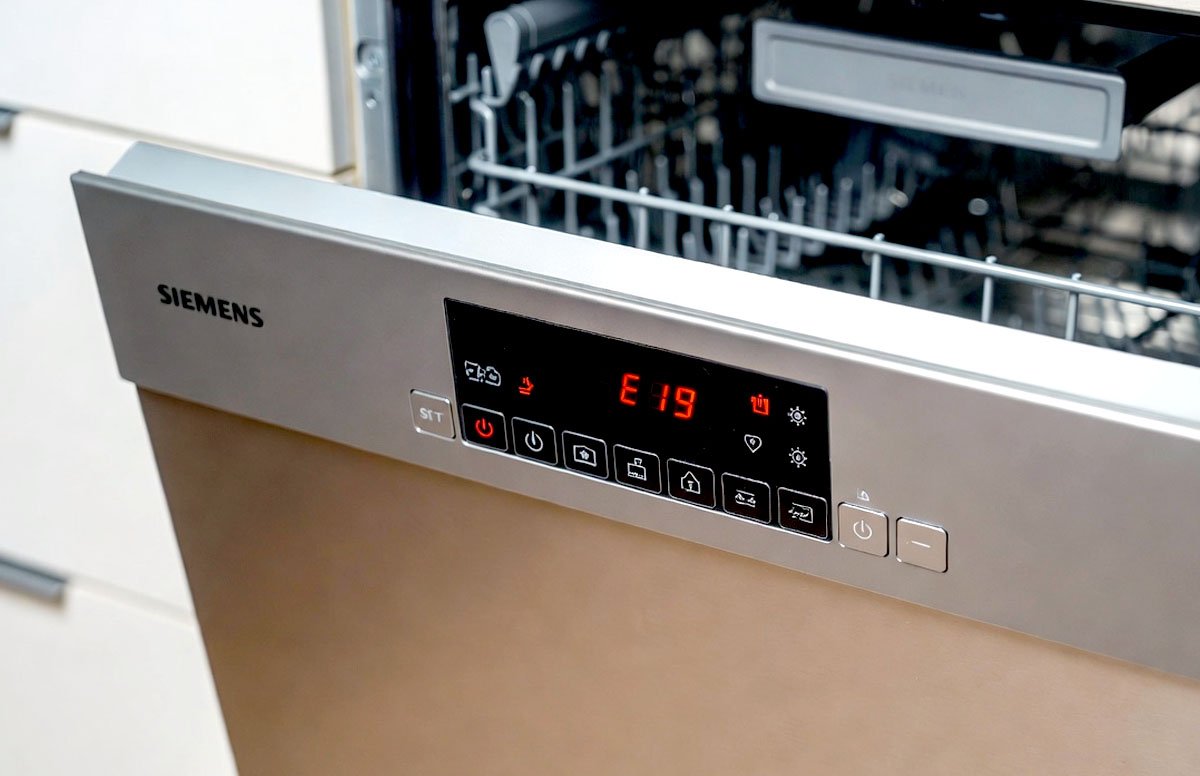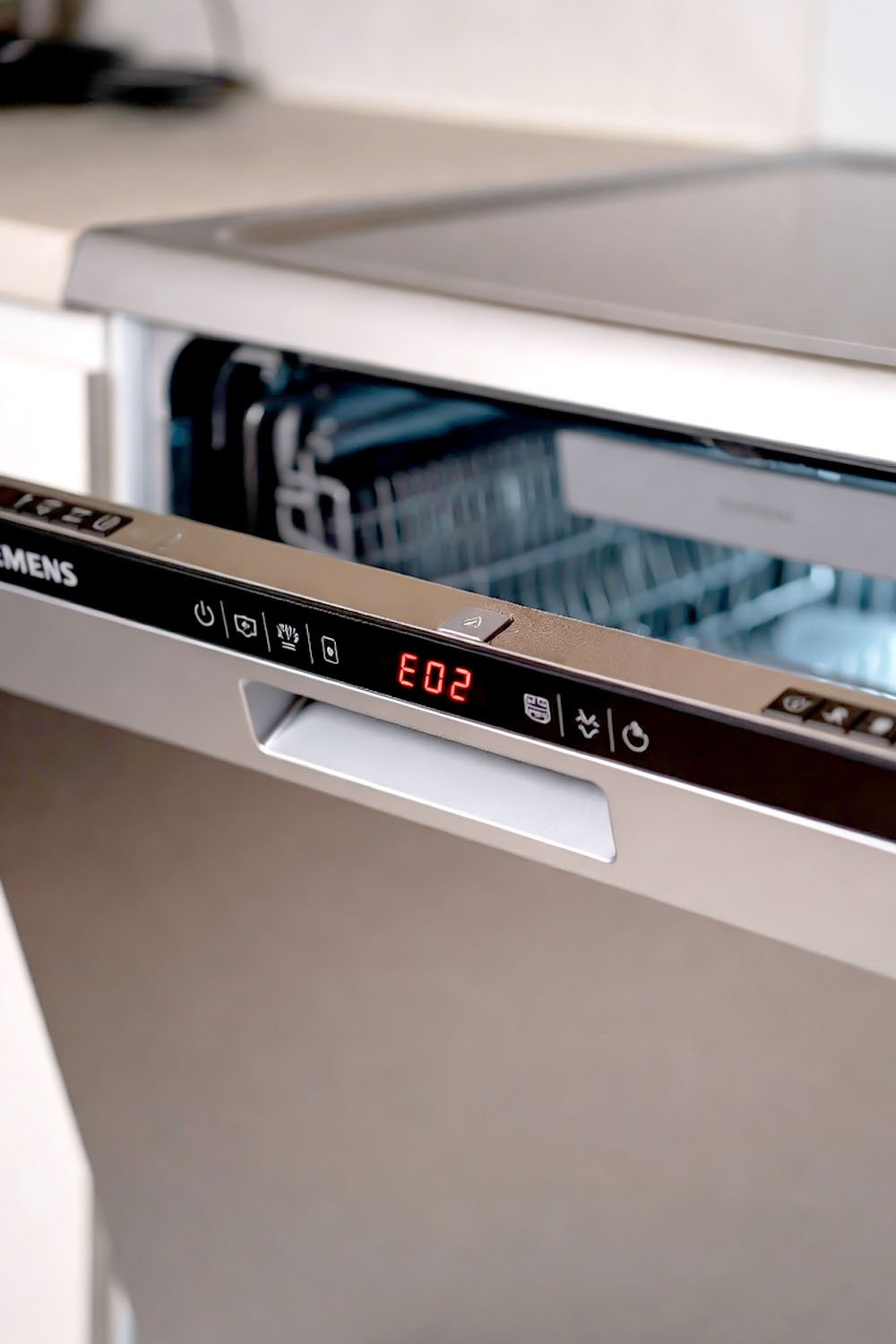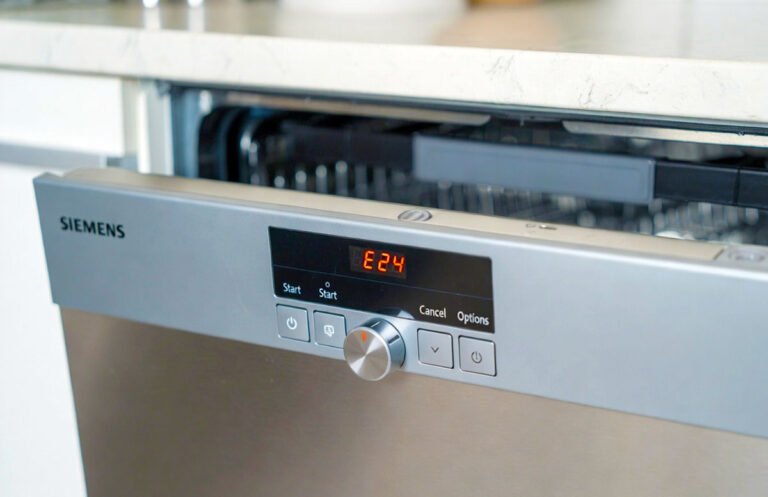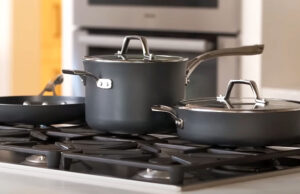As an Amazon Associate, I earn from qualifying purchases at no extra cost to you.
Are Dishwashers Hardwired or Plugged In? Simple Truth
Have you ever wondered how dishwashers get their power? I was curious too, so I asked a pro and found the answer. Dishwashers can be either hardwired or plugged in, but most new homes have them hardwired for safety and neatness. In this article, I’ll share all you need to know about how dishwashers are connected to power and what that means for you.
How Dishwashers Get Power in Your Home
Dishwashers need electricity to run their motors, pumps, and heaters. Usually, they get power either by plugging into an outlet or by being hardwired directly to your home’s electrical system. The way they are connected depends on how your kitchen is set up and local rules.
In many older homes, dishwashers are plugged into a special outlet under the sink or behind the appliance. This makes it easier to disconnect the dishwasher for repairs or replacement. However, in newer homes or places with strict electrical codes, dishwashers are often hardwired. This means the dishwasher’s wires are connected directly to the home’s wiring without a plug.
Hardwiring helps keep things neat because there is no visible cord or plug. It also lowers the risk of accidental unplugging or loose connections. Electricians usually install a special switch or breaker just for the dishwasher to make it safe to turn off the power when needed.
Both ways are safe if done right. If you’re not sure which type you have or want to switch, a licensed electrician can help you figure it out and make any changes safely.
- Dishwashers need electricity to work.
- They can be plugged in or hardwired.
- Older homes may use plugs.
- Newer homes usually hardwire for neatness and safety.
- Both methods are safe when installed correctly.
- Electricians can help decide and install.
- Power is often controlled by a special switch or breaker.
What Hardwired Dishwashers Mean for Your Kitchen
When a dishwasher is hardwired, it means its power wires are connected directly to your home’s electrical system. You won’t see a plug or cord hanging behind the dishwasher. This setup is common in newer kitchens and is often required by local electrical rules.
Hardwiring gives a clean look because no cord is visible. It also reduces the risk that the dishwasher might accidentally get unplugged during cleaning or moving. Another good point is safety. Hardwired dishwashers usually have their own breaker switch in the electrical panel, so you can quickly turn off power if needed.
For hardwired dishwashers, electricians use special junction boxes hidden behind the appliance or under the sink. They connect the dishwasher wires to the home’s wiring inside these boxes. It’s important that this work is done carefully to prevent any electrical problems or hazards.
If you want to replace or repair a hardwired dishwasher, you should always turn off the breaker first. Because there is no plug, it’s not possible to just unplug it. Also, if you are thinking about moving your dishwasher or changing your kitchen layout, the hardwired connection will need professional attention.
- Hardwired means no plug or visible cord.
- Clean and tidy kitchen look.
- Less chance of accidental unplugging.
- Usually has its own breaker switch.
- Uses junction boxes for wiring.
- Needs careful installation for safety.
- Repairs or moves require breaker off and professional help.
Why Some Dishwashers Are Plugged In
Not all dishwashers are hardwired. Many dishwashers come with a power cord and plug. This makes them easy to install, repair, or replace because you just plug or unplug them from an outlet.
Homes built a few decades ago or some apartments often have dishwashers plugged into an outlet under the sink or behind the unit. This outlet is usually a special one made just for the dishwasher. Having a plug means if the dishwasher stops working, you can easily unplug it for safety or repair without turning off the main breaker.
For DIY enthusiasts, plug-in dishwashers are easier to manage because no special wiring skills are needed to disconnect or connect the appliance. But you should always be careful when handling plugs near water and make sure the outlet is properly grounded.
The main downside is the visible power cord, which some people find messy or hard to hide. Also, there is a slight risk that the plug can loosen over time, causing power issues. But with normal use and proper installation, plugged dishwashers work safely and well.
- Some dishwashers have plugs and cords.
- Easy to install and replace.
- Common in older homes and apartments.
- Outlet is usually special and grounded.
- Safer to unplug for repairs or safety.
- Easy for DIY to manage.
- Power cords may be visible and can loosen.
How to Know If Your Dishwasher Is Hardwired or Plugged In
If you want to find out how your dishwasher is connected, you can do a simple check. First, look under the sink or behind the dishwasher. If you see a power cord plugged into an outlet, it’s plugged in. The outlet is often hidden but should be easy to find near the dishwasher.
If you don’t see any cord or plug, your dishwasher is likely hardwired. In this case, the wires are connected inside a small metal or plastic box usually near the dishwasher or under the sink. Sometimes you might need to pull the dishwasher out slightly to see this box.
If you’re unsure or don’t feel comfortable checking electrical parts yourself, call an electrician. It’s important not to touch wiring without knowing what you’re doing because of the risk of electric shock.
Also, you can check your home’s electrical panel for a breaker labeled “Dishwasher.” If there is one, your dishwasher may be hardwired and controlled by that breaker.
- Look behind or under the dishwasher.
- A visible cord means plugged in.
- No cord means likely hardwired.
- Hardwired uses a hidden junction box.
- Pull dishwasher slightly if needed.
- Call an electrician if unsure.
- Check for dishwasher breaker in panel.
Can You Change a Dishwasher from Plugged In to Hardwired?
Yes, you can change a dishwasher from plugged in to hardwired, but it is best done by a professional electrician. This change can make your kitchen look neater and can be safer by removing the plug and cord.
To switch from plug to hardwired, the electrician will install a junction box and connect the dishwasher wires directly to the house wiring. They will also add a dedicated breaker in the electrical panel if needed. This work must follow local electrical codes for safety.
Before changing, make sure the dishwasher power cord is removed, and the outlet can be safely disconnected. Sometimes the wall outlet used for plugging in the dishwasher can be removed or covered.
Changing from plug to hardwired is not a DIY project unless you know electrical work well. It involves cutting power, wiring correctly, and testing for safety. A bad connection can cause shorts or fires, so trust a licensed pro.
- Changing from plug to hardwired is possible.
- Needs a professional electrician.
- Junction box and direct wiring installed.
- Dedicated breaker added for safety.
- Remove dishwasher cord and outlet if needed.
- Follow local electrical codes.
- Not a DIY job unless experienced.
Are There Safety Rules About Dishwasher Wiring?
Yes, safety rules are very important when wiring dishwashers. Electrical codes set rules to protect your home and family from fires or shocks.
One key rule is that dishwashers usually must be connected to a dedicated circuit. This means the power for the dishwasher does not share wiring with other appliances. A dedicated breaker helps prevent overloads.
Also, wiring must be properly grounded. Grounding is a safety feature that stops electric shocks if something goes wrong. Whether your dishwasher is hardwired or plugged in, grounding must be correct.
Local building codes may require hardwiring instead of plugs for dishwashers. This rule helps keep wiring safe and neat.
Lastly, there must be a way to disconnect power near the dishwasher. For hardwired units, this is usually a breaker switch. For plugged-in dishwashers, unplugging works.
Ignoring these rules can cause danger. Always hire an electrician who knows local codes to do dishwasher wiring.
- Dedicated circuit for dishwasher required.
- Proper grounding is very important.
- Local codes may require hardwiring.
- Power disconnect must be near dishwasher.
- Ignoring rules can be dangerous.
- Use a licensed electrician.
- Safety rules protect home and family.
What to Do If You Need to Repair or Replace a Dishwasher Connection
If your dishwasher stops working or you need to replace it, the way it is connected matters.
For plugged-in dishwashers, you can simply unplug the power cord before doing any work. This is quick and safe.
For hardwired dishwashers, you must turn off the dishwasher breaker at the main electrical panel before doing anything. Because there is no plug, you can’t just unplug it.
When replacing a dishwasher, check the connection type first. If you want to change from plug to hardwired or vice versa, plan for an electrician to help.
Never try to work on dishwasher wiring if you don’t know electrical safety. Water and electricity can be a dangerous mix.
Also, if the wiring looks old or damaged, have it inspected and fixed by a pro. Good wiring keeps your dishwasher working well and your home safe.
- Plugged dishwashers unplug easily for repair.
- Hardwired dishwashers need breaker off.
- Check connection type before replacing.
- Call electrician for switching connection types.
- Never work on wiring without safety knowledge.
- Inspect old or damaged wiring.
- Safe wiring protects your home.
Final Thoughts
Understanding if your dishwasher is hardwired or plugged in is important for safety and repairs. Most modern homes use hardwired dishwashers for a clean look and safer connections. Older homes might still have plugged-in dishwashers that are easy to manage. If you want to change the connection type or fix wiring, always call a professional electrician to keep things safe. Knowing how your dishwasher gets power can save you time, money, and trouble.
| Dishwasher Connection | Description | Pros | Cons | Who Should Handle It |
|---|---|---|---|---|
| Hardwired | Connected directly to wiring | Clean look, safer, no unplug | Needs breaker off to disconnect | Licensed electrician |
| Plugged In | Power cord plugs into outlet | Easy to install and unplug | Visible cord, can loosen | Homeowner or electrician |
Frequently Asked Questions (FAQs)
Is it safe to hardwire a dishwasher myself?
Hardwiring a dishwasher yourself is not safe unless you are trained in electrical work. Mistakes can cause shocks or fires. A licensed electrician knows local codes and how to connect wires safely. They use special tools and test the wiring. For your safety and home protection, always hire a professional.
Can I plug a dishwasher into a normal outlet?
No, dishwashers must be plugged into a special outlet designed for appliances. This outlet is grounded and made to handle the dishwasher’s power needs. Using a normal outlet can cause power problems or hazards. If you don’t have the right outlet, an electrician can install one safely.
Do I need a dedicated breaker for my dishwasher?
Yes, most electrical codes require dishwashers to have a dedicated breaker. This breaker only controls the dishwasher’s power. It helps prevent electrical overloads and makes it safer to turn off the dishwasher’s power when needed. Check your local rules or ask an electrician.
Is it common for new homes to have hardwired dishwashers?
Yes, many new homes have dishwashers hardwired to meet modern electrical codes. Hardwiring keeps wiring neat and reduces risks. It also makes the kitchen look cleaner with no cords visible. Hardwired dishwashers often have dedicated breakers for safety.
Can I switch my plugged dishwasher to hardwired?
Yes, but this should be done by a licensed electrician. They will install a junction box and connect the dishwasher directly to your home wiring. This switch improves safety and appearance but involves careful electrical work. Don’t try to do it yourself unless experienced.
Do I have to turn off the power breaker before working on my dishwasher?
Yes, always turn off the power breaker before working on a dishwasher’s wiring or repair. For hardwired dishwashers, you can’t unplug the power, so breaker off is the only way to ensure safety. For plugged dishwashers, unplugging is usually enough, but breaker off is safer.
Is it harder to move a hardwired dishwasher?
Yes, moving a hardwired dishwasher takes more work because you must disconnect the wiring safely and then reconnect it in the new spot. This work should be done by an electrician. Plugged-in dishwashers are easier to move since you can unplug and plug them in again.
Can a loose plug cause dishwasher problems?
Yes, a loose or partially unplugged cord can cause power interruptions, making the dishwasher stop or act strangely. If your dishwasher stops working randomly, check the plug connection first. Tighten or replace the cord if needed, or call an electrician if you are unsure.









